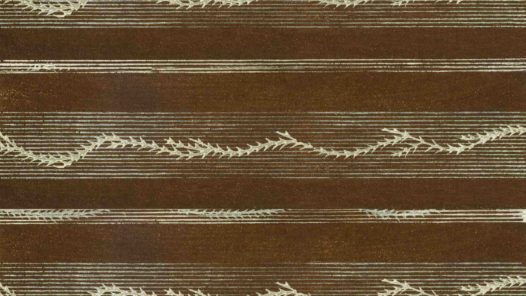The saying liar, liar pants on fire is part of a longer children’s rhyme that’s been around since 1841 or so. There are several different versions of what comes after the line liar, liar, pants on fire, such as “Hanging by a telephone wire / While you’re there, cut your hair / And stick it down your underwear.” A listener in Indianapolis, Indiana, reports finding other taglines, such as “Stick your head in boiling water,” and the milder “Wash your face in dirty water.” This is part of a complete episode.
Transcript of “Liar, Liar, Pants on Fire Origin”
Hello, you have A Way with Words.
Hi, this is Emily. I’m calling from Indianapolis.
Hi Emily, welcome. What’s going on?
Thanks.
Well, I was at a cousin’s graduation party and my uncle and I got into a little bit of an argument about the origin or the correct ending for the phrase “Liar, liar, pants on fire.”
He seems to think that it is “your nose is longer than a telephone wire and I had always heard “hanging from a telephone wire.”
So I did a little research…
I checked it out on social media and put out a call for some answers.
His version seems to be the most popular of those who responded, but I get some really weird variations.
Okay.
Yeah?
Let’s hear those.
I got, “Sitting on a telephone wire. Hang your nose from a telephone wire. Your nose looks like a telephone wire.”
And then my cousin was the weirdest.
She said, “Stick your head in boiling water.”
So, “Liar, liar, pants on fire, stick your head in boiling water.”
That doesn’t rhyme.
Right.
Her sister seems to think she got it through the phrase,
“Wash your face in dirty water,” which is what she had heard.
So your version is, what is it, hanging from a telephone wire?
Right.
Okay. Why did this come up? Who was the liar?
Yeah, what was going on?
Oh, I don’t even remember.
Oh, okay.
And he doesn’t either.
Oh, one of those parties.
Mm-hmm. One of those arguments.
How many arguments are like a become about the argument? You don’t even remember the point.
Oh, it was all in good fun.
All right, here’s the little that we know about this first.
It doesn’t appear to be that old any version of this “liar liar pants on fire.”
We first find firmly in print in the 1930s
the researcher Barry Popik P O P I K has done some digging on this and he found a slightly similar version of something about “liar liar da da da” from the 1840s, but I don’t think that’s the origin of it because there’s a giant gap of 90 years in between the two.
So it’s probably just a coincidence and it’s not about “pants on fire.”
That said, the earliest versions that we know of this rhyme where you rhyme “liar liar pants on fire” with something else is from 1941 and it is “liar liar pants on fire”
“noses as long as a telephone wire.”
Okay. And that’s his version, right? Your uncle’s version?
Right. Yeah, and he and my mom both said that it came from their mother, who would sing it to them. Yeah, it’s definitely a children’s rhyme.
And occasionally in the early years, it would be telegraph wire, when the telegraph was common. But since the telegraph doesn’t really exist for us anymore, that’s now telephone for anyone who knows the rhyme. Right. And do you know the melody that she would sing? I don’t know that.
Oh too bad okay.
Because there is a kind of a tauntingness to it right?
Yeah and so so the image is like like Pinocchio right? Nose as long as the telephone wire okay.
Yeah, the other thing about this is there are more elaborated versions of the rhyme that some people know that are beyond the two lines that we’ve been talking about so far and one of the kind of canonical ones is “liar liar pants on fire hanging by a telephone wire. While you’re there, cut your hair and stick it down your underwear.”
Oh, that’s pretty cool.
Yeah.
And so the ones that you said about, what is it? The hair, water, water. I don’t even know. What were yours?
Stick your head in boiling water or wash your face in dirty water.
Yeah.
It sounds like there’s some lines missing there.
Interesting.
Anyway, so there we go.
The best that we can do is the earliest version that we know of is of the whole rhyme or some version of the whole rhyme is from 1941.
Great.
Well, thank you so much.
Yeah.
Our pleasure and what are you gonna do now that you’ve proven your uncle right?
Well, I’ll call him and tell him because I’m a good sport.
Oh, there we go that’s the way. Start some new argument, though, just so you have something to talk about.
And then call us about it!
Oh, we have plenty of those all right so we’ll hear from you again thanks for calling.
Thanks, Emily.
Thank you. Have a good day. Bye.
Do you know I never heard the last part of that at all? I’ve never heard anything beyond liar liar pants on fire.
Oh, really?
Yeah, it’s sort of like “happy as a clam.”
Never heard telegraph wire or telephone wire?
Nope, nope.
What?
No, I’m not lying either.
Preacher’s daughter, they kept it from you.
(both laughing)
So call us, 877-929-9673,
Or send your questions about language to words@waywordradio.org.





My info is that the children’s ditty “Liar, Liar, pants on fire, hanging from a telephone wire.” came from paraphrasing the poem by William Blake titled “The Liar.” The first and last stanza of “The Liar” is clearly the source text, with the line about the “telephone wire” answering Blake’s question about what pole or gallows the trousers are hanging from.
“Deceiver, dissembler
Your trousers are alight
From what pole or gallows
Do they dangle in the night?”